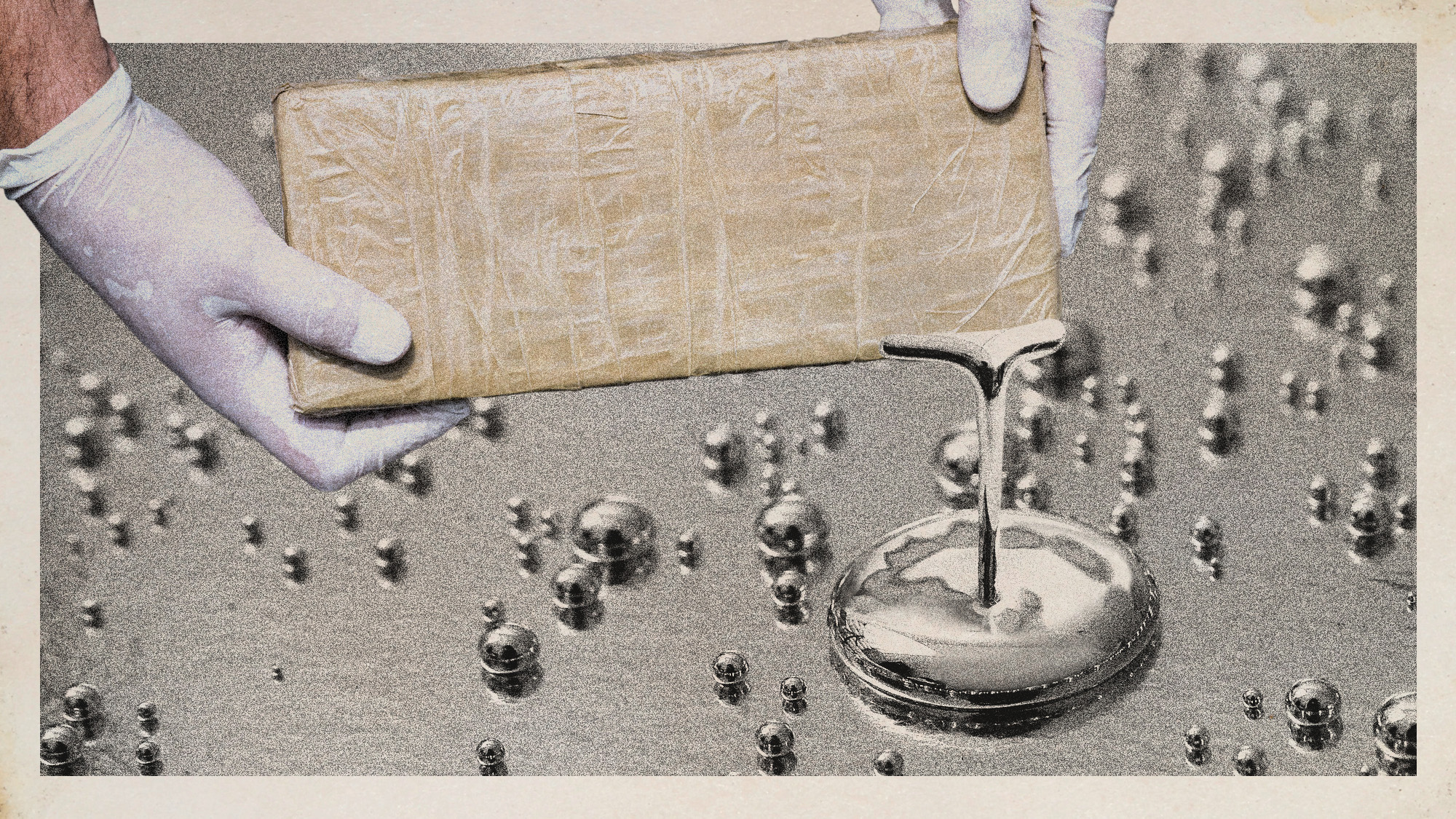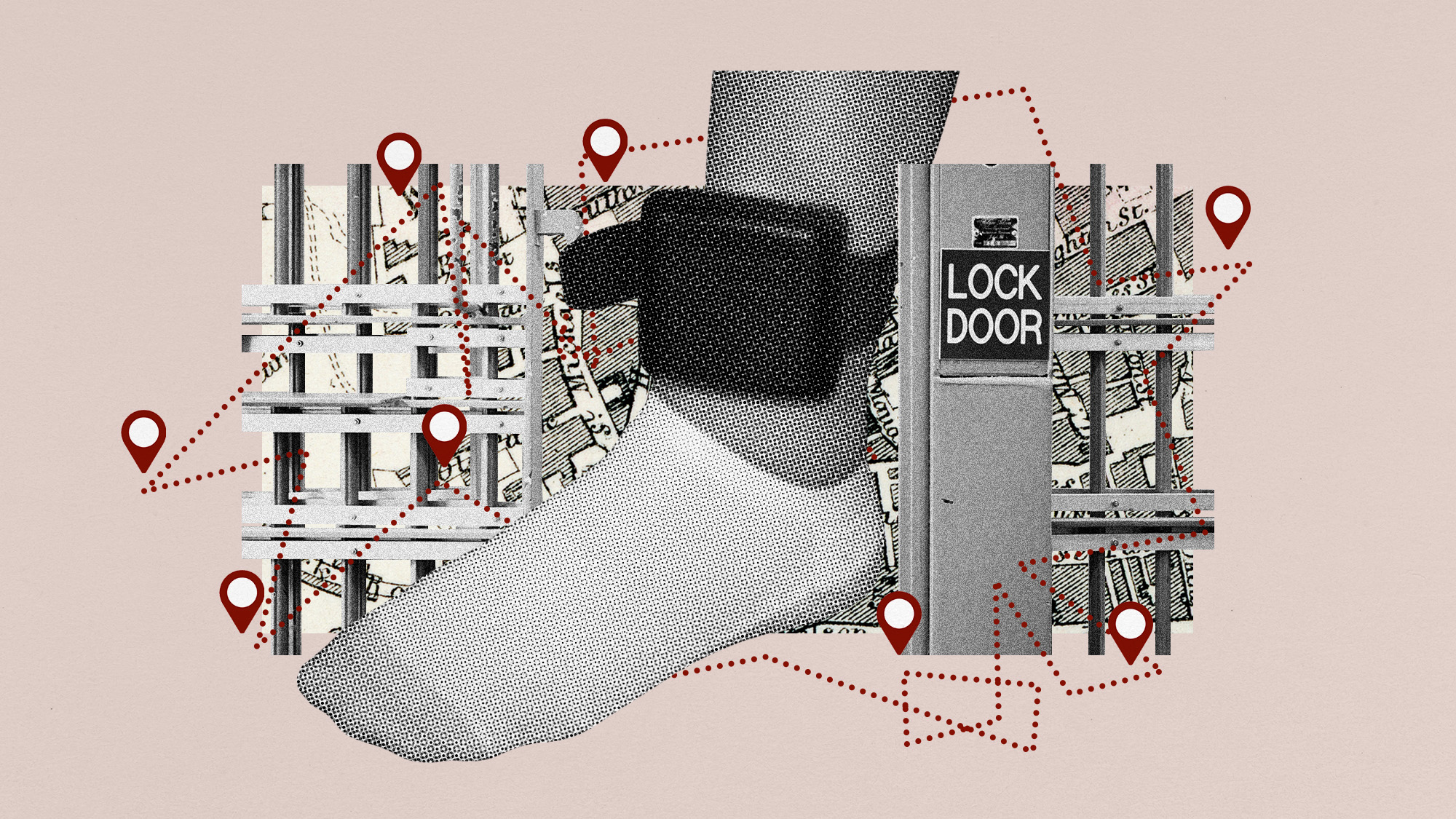Girls Night In: nightclubs facing boycott over ‘needle spiking’
Priti Patel demands police action amid reports of women being drugged via drinks and needles

A free daily email with the biggest news stories of the day – and the best features from TheWeek.com
You are now subscribed
Your newsletter sign-up was successful
An “epidemic” of spiking via drinks and needles has sparked a UK-wide campaign to boycott nightlife venues until they are made safer for women.
Girls Night In groups, now active in around 30 cities, want immediate action to prevent spiking through measures ranging from the provision of covers that can be placed over drinks to increased surveillance in clubs and bars.
The Night Time Industries Association (NTIA) has confirmed that reports of drink spiking cases are increasing across the country and has called on the Home Office to launch an inquiry into the problem.
The Week
Escape your echo chamber. Get the facts behind the news, plus analysis from multiple perspectives.

Sign up for The Week's Free Newsletters
From our morning news briefing to a weekly Good News Newsletter, get the best of The Week delivered directly to your inbox.
From our morning news briefing to a weekly Good News Newsletter, get the best of The Week delivered directly to your inbox.
“It goes without saying that everyone should be able to enjoy a night out without fearing for their own safety,” said the trade association’s CEO Michael Kill.
Spiking someone’s drink with drugs or alcohol leaves them vulnerable to attacks ranging from sexual assault to theft. According to Drinkaware, an independent UK-wide alcohol education charity, drugs used for drink spiking, such as Rohypnol (also known as roofie) and gamma hydroxybutyrate (GHB), are generally “odourless, colourless and tasteless”, making them easy to disguise in a drink.
And these drugs don’t stay in the body for very long, which means they can be hard to detect.
As well as drink spiking, an increasing number of women are reportedly being spiked in nightclubs via needle injection. Nottinghamshire Police is investigating 12 suspected cases of needle spiking, with the victims claiming to have experienced effects that were “consistent with a substance being administered”.
A free daily email with the biggest news stories of the day – and the best features from TheWeek.com
In a statement, the force said it had received 44 spiking reports since 4 September, with 12 alleging “spiking by something sharp as opposed to a traditional method of contaminated alcoholic drinks”.
The majority of the victims have been young women, however some young men reported potential spiking too.
Zara Owens, a 19-year-old university student, wrote on Instagram that after a night out at the Pryzm club in Nottingham, she woke up to a “sharp, agonising pain” in her leg and “zero recollection” of the previous evening.
“I touched the part [of my leg] where I was in the most pain and I found a pinprick. I had been spiked,” she wrote. Owens added that she had been wearing jeans and “a needle went through thick denim straight into my leg”.
Nineteen-year-old Sarah Buckle had a similar experience. She told BBC Radio Nottingham she had to have a hepatitis test after a pinprick wound was found on her hand. “I’ve had numerous people reach out to me essentially saying ‘this happened to me the week [before], but I thought I was going crazy because I hadn’t heard of it’,” she said.
A 20-year-old man has been arrested as part of a wider investigation into spiking and the force has deployed more officers to the city centre. “A dedicated team of detectives are investigating these allegations,” said Nottingham Police in a statement.
Needle attacks are sadly not a new problem. According to Stylist magazine, the crime dates back to the 1980s, in the heart of the Aids epidemic, when so-called “pinprick attacks” – where perpetrators injected people with syringes in public places – caused widespread panic.
A similarly horrifying spate of attacks made the news in 2013, when police reported that up to five women had been attacked with hypodermic needles in Birmingham city centre over a period of 18 months.
As well as forming Girls Night In groups, young women are taking action to prevent more people from being attacked when out clubbing.
Hannah Thomson, a former student from Glasgow, created a petition to make it a legal requirement for nightclubs to thoroughly search guests on entry to “prevent harmful weapons and other items entering the establishment”.
It has since received more than 150,000 signatures, meaning that Parliament will now consider the topic as a debate.
But the Alcohol Education Trust has warned that spiking can happen in more private spaces, like house parties, and that the perpetrator of spiking is as likely to be someone in a wider friendship group as a complete stranger.
The trust has also said that there is often a surge in spiking during freshers’ week or the first term of university, so around the same time as these recent reports.
Writing on Twitter, Vice journalist Sophia Smith Galer said that it was “worth remembering that the autumn spate is sadly not unusual nationwide, and also that it’d be wrong to assume it’s a uniquely ‘stranger danger’ issue”.
The Manchester branch of Girls Night In has urged people not to not sign Thomson’s petition, explaining that increasing the powers of security “would have a negative impact on multiple sections of our community, particularly Black people”.
Instead, the organisation said it was “working on lists of demands from local government and club owners”, as well as working with other Girls Night In groups “on demands from national government”.
Home Secretary Priti Patel has requested an urgent update from the police following the spate of spiking cases, according to a Politico source.
A representative from the Home Office told the Mirror that they “need to understand the scale of the problem”, adding: “The thought of what’s going on is just horrendous.”
Kate Samuelson is The Week's former newsletter editor. She was also a regular guest on award-winning podcast The Week Unwrapped. Kate's career as a journalist began on the MailOnline graduate training scheme, which involved stints as a reporter at the South West News Service's office in Cambridge and the Liverpool Echo. She moved from MailOnline to Time magazine's satellite office in London, where she covered current affairs and culture for both the print mag and website. Before joining The Week, Kate worked at ActionAid UK, where she led the planning and delivery of all content gathering trips, from Bangladesh to Brazil. She is passionate about women's rights and using her skills as a journalist to highlight underrepresented communities. Alongside her staff roles, Kate has written for various magazines and newspapers including Stylist, Metro.co.uk, The Guardian and the i news site. She is also the founder and editor of Cheapskate London, an award-winning weekly newsletter that curates the best free events with the aim of making the capital more accessible.
-
 How the FCC’s ‘equal time’ rule works
How the FCC’s ‘equal time’ rule worksIn the Spotlight The law is at the heart of the Colbert-CBS conflict
-
 What is the endgame in the DHS shutdown?
What is the endgame in the DHS shutdown?Today’s Big Question Democrats want to rein in ICE’s immigration crackdown
-
 ‘Poor time management isn’t just an inconvenience’
‘Poor time management isn’t just an inconvenience’Instant Opinion Opinion, comment and editorials of the day
-
 Mexico’s forced disappearances
Mexico’s forced disappearancesUnder the Radar 130,000 people missing as 20-year war on drugs leaves ‘the country’s landscape ever more blood-soaked’
-
 Illicit mercury is poisoning the Amazon
Illicit mercury is poisoning the AmazonUnder the Radar 'Essential' to illegal gold mining, toxic mercury is being trafficked across Latin America, 'fuelling violence' and 'environmental devastation'
-
 Thailand is rolling back on its legal cannabis empire
Thailand is rolling back on its legal cannabis empireUnder the Radar Government restricts cannabis use to medical purposes only and threatens to re-criminalise altogether, sparking fears for the $1 billion industry
-
 Narco subs are helping to fuel a global cocaine surge
Narco subs are helping to fuel a global cocaine surgeThe Explainer Drug smugglers are increasingly relying on underwater travel to hide from law enforcement
-
 Mexico extradites 29 cartel figures amid US tariff threat
Mexico extradites 29 cartel figures amid US tariff threatSpeed Read The extradited suspects include Rafael Caro Quintero, long sought after killing a US narcotics agent
-
 'Virtual prisons': how tech could let offenders serve time at home
'Virtual prisons': how tech could let offenders serve time at homeUnder The Radar New technology offers opportunities to address the jails crisis but does it 'miss the point'?
-
 Inside Marseille's deadly drug wars
Inside Marseille's deadly drug warsThe Explainer Teenage hitmen recruited through social media are lured by money and gang 'brand'
-
 Europe's drug gangs in the spotlight
Europe's drug gangs in the spotlightThe Explainer The illegal narcotics trade is fuelling a surge in gang violence across the continent